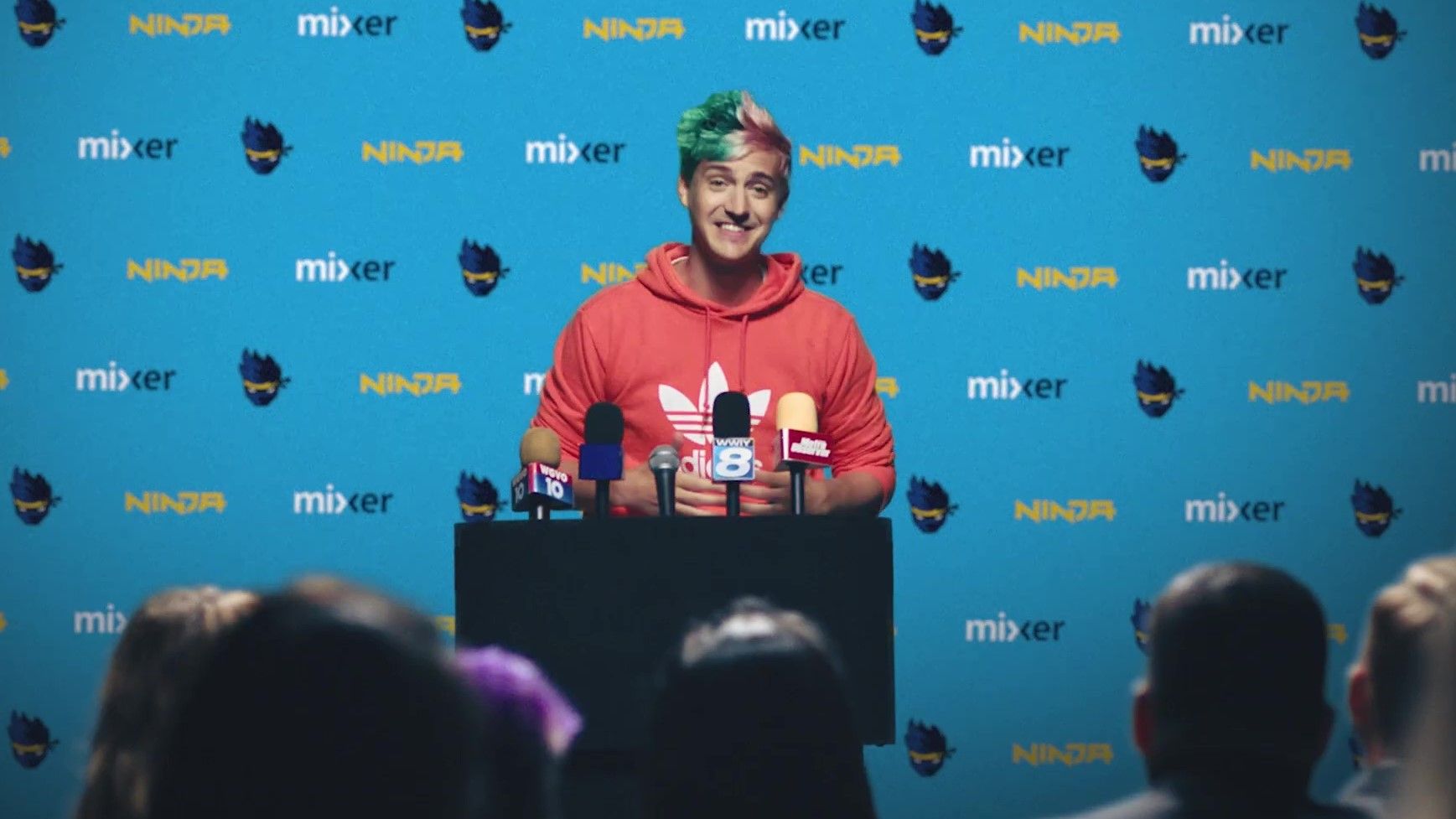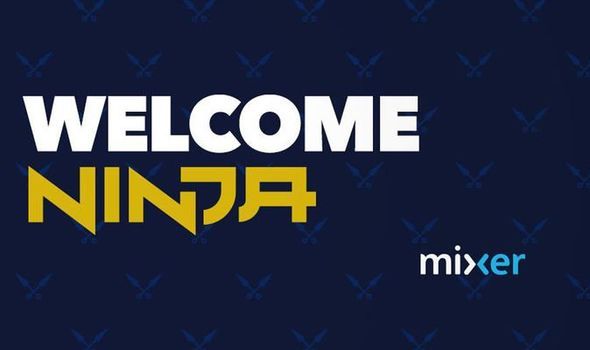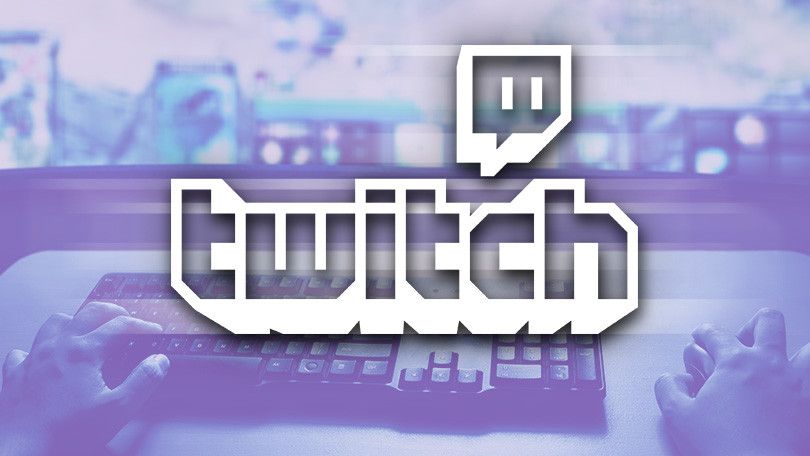Ninja's Big Move: What Does it Mean?
This is a big moment for streaming, and the gaming ecosystem at large. Let’s break down just what this means for Microsoft, Twitch, and Ninja...

What does one of the biggest streamers on Twitch leaving for Mixer mean for him, streaming platforms, and the world of gaming? Let's break it down.
Yesterday, Microsoft and Mixer shocked the streaming and gaming worlds with the announcement that the latter had signed Ninja, arguably the most well known Twitch creator on the planet, to an exclusive full-time deal. He will be leaving his original channel to commit exclusively to Mixer, where he intends to deliver the same content, with the same collaborators, who will remain on Twitch. Clearly, the team at Mixer is hoping that becoming Ninja’s exclusive home will bring an enormous influx of new viewers to their platform, which in turn can transition into new users for a streaming service that has always focused on stream interactivity and flexibility, but has long struggled to make a significant dent in Twitch’s market-share.
This is a big moment for streaming, and the gaming ecosystem at large. Let’s break down just what this means for Microsoft, Twitch, Ninja and other Creators, and game publishers, and what it might say about where things are headed in the sector’s future.
What it Means for Microsoft and Mixer

Mixer is making a huge bet on Ninja’s ability to draw in new users, and infuse the platform with new life and excitement. One of the biggest problems the streaming service has had in trying to carve out a larger niche for themselves has been their inability to pull in large-audience “signature” creators. With Twitch representing such a hotbed of competition, it’s been the smaller creators, looking to make a name for themselves be being the proverbial bigger fish in a smaller pond, moving to Mixer to get noticed. Now they have that big name to draw in a significantly larger audience and orient more potential users towards the site.
It seems likely that the deal between Ninja and Mixer involves significant financial guarantees. The creator is used to making well over $100K in revenue, every month, from Twitch subscriptions alone, and is estimated to have made nearly $10 Million in 2018. While his numbers have been declining in recent months, it seems reasonable to assume that his exclusivity deal is constructed in such a fashion as to assure Ninja that he was not losing money in the move, and that’s a substantial investment on Mixer’s part. So, while they’re getting the marquee player they’ve been looking for, it will have to yield significant dividends in terms of growth for the entire platform to wind up being the “right call.” That’s why it’s reasonable to assume that Mixer, and Microsoft, are getting much more than just stream exclusivity.
Ninja began his career in gaming as a professional Halo 3 player, way back in 2009. With Halo Infinite on the horizon, it’s serendipitous that he now finds himself in a relationship with Microsoft, the game’s publisher and the purveyor’s of the Xbox ecosystem, the game’s future home. Indeed, it seems likely that this deal doesn’t just make Ninja the preeminent personality on Mixer, but a focal point of Microsoft’s entire gaming brand, becoming central to the future of their Xbox marketing campaigns, promotions built around Halo and other future titles, and everything in between. If that’s the case, it would be the first real example of a game developer paying top dollar to make a top-tier content creator the face of their entire brand. That feels big.
Developers are used to working with streamers and creators when promoting a new title, but it’s typically on a game-by-game basis, with new contracts and terms for each agreement. They don’t go to the biggest names in the space and, essentially, put them on retainer. There are brand ambassadors and “stream teams,” sure, but they tend to be smaller creators, not the biggest of the big. Microsoft is leveraging their position as operators of a streaming platform to engage with one of these creators in an entirely new way, bringing them into the fold by giving them the large payday their value dictates they deserve. It’s, of course, very early, and thus unclear just how this relationship will manifest, but if it leads to real success, don’t be surprised to see other big publishers, your EAs and Ubisofts, who might not have streaming platforms but are, indeed, trying to promote game services, subscriptions, and other products of their own, work with streamers in similar ways.
What it Means for Twitch

Twitch isn’t in any worse position today than it was yesterday, but further developments could change things. Without question, the platform can withstand the departure of Ninja, who, while one of the most well-known names in the space has been slowly declining in terms of his overall viewership. Amazon’s streaming giant is much, much bigger than any single creator, at this point, almost to the point of ubiquity, and as long as people are watching Fortnite, Teamfight Tactics, League of Legends, and other mainstays by the hundreds of thousands or millions, they’ll be mostly doing it on Twitch. It’s one of the reasons that Ninja likely couldn’t turn down whatever Mixer was offering: because there was no way Twitch would offer the same.
Still, Ninja doesn’t just represent himself. He could be the first of a flood of new creators leaving the purple powerhouse for Mixer’s shores, if things go a certain way. The world of streaming is big and vast, but closely knit in many ways, particularly at the top, and if Ninja’s experience with Mixer is a positive one, other creators are going to hear about it. Suppose there are other creators who have already entered into similar deals with Mixer, yet to be announced; how many would it take to make a real dent in Twitch’s market-share? The answer is obviously a lot, but the question is not so outrageous as to be dismissed out of hand. Where this relationship goes from here is very important, and how it develops could determine whether Twitch, indeed, could have real competition at some point in the future.
What it Means for Ninja and Other Creators

At first, the reaction of many to the news of Ninja’s leaving Twitch was one of confusion: why would he leave a platform that was paying him so well? But, the more you look at it, the more you realize he now finds himself in an enviable position. Yes, Ninja’s reported earnings last year were substantial, but projecting them forward would be a mistake. As we noted, Ninja’s audience has been shrinking for some time now. In September of 2018, he earned more than an estimated $219k from 62,583 subscriptions. By February, those numbers had fallen to just over $99k and 28,394, respectively. As the world of streaming has become bigger and bigger, with more and more creators carving out healthy platforms of their own, Ninja’s position at the top of the pile had become more tenuous, and in the future it seemed likely that his earnings would fall.
Now, though, if our assumptions about his contract with Mixer are correct, he has a stable, guaranteed income, independent of the growth and retraction of his audience. That should enable him to stop keeping such a close eye on his metrics and think more about the content itself, as well as leveraging what has become one of his most substantial professional assets: his celebrity. These days, Ninja has a lot of responsibilities outside of his actual stream, with myriad sponsorship deals and other obligations drawing his attention away from his main platform. With this new deal with Mixer, he can give his full portfolio of work the attention it needs, without worrying about a temporary loss in viewership negatively impacting his bottom line.
Without question, other creators will be watching carefully. While the life of a streamer can be quite lucrative, for many that income feels like it could disappear at any moment. As the world of streaming gets bigger and bigger, the ways creators make sustainable incomes become fewer and fewer, with more creators vying for subscriptions from fans and fewer ad dollars to go around. If publishers like Microsoft can leverage their own unique offerings into similar platforms from which to work with streamers, to provide them with real, stable income in return for more official, sophisticated relationships, it could lead to an entire ecosystem of such agreements, an entirely new avenue of influencer marketing in the gaming space.
Be sure to check out this week's #Top5OnTwich rankings to see who's rising up the charts in the world of streaming, and follow us on Twitter and LinkedIn for all the latest blogs, announcements, and game marketing news from the team at GAMESIGHT!

